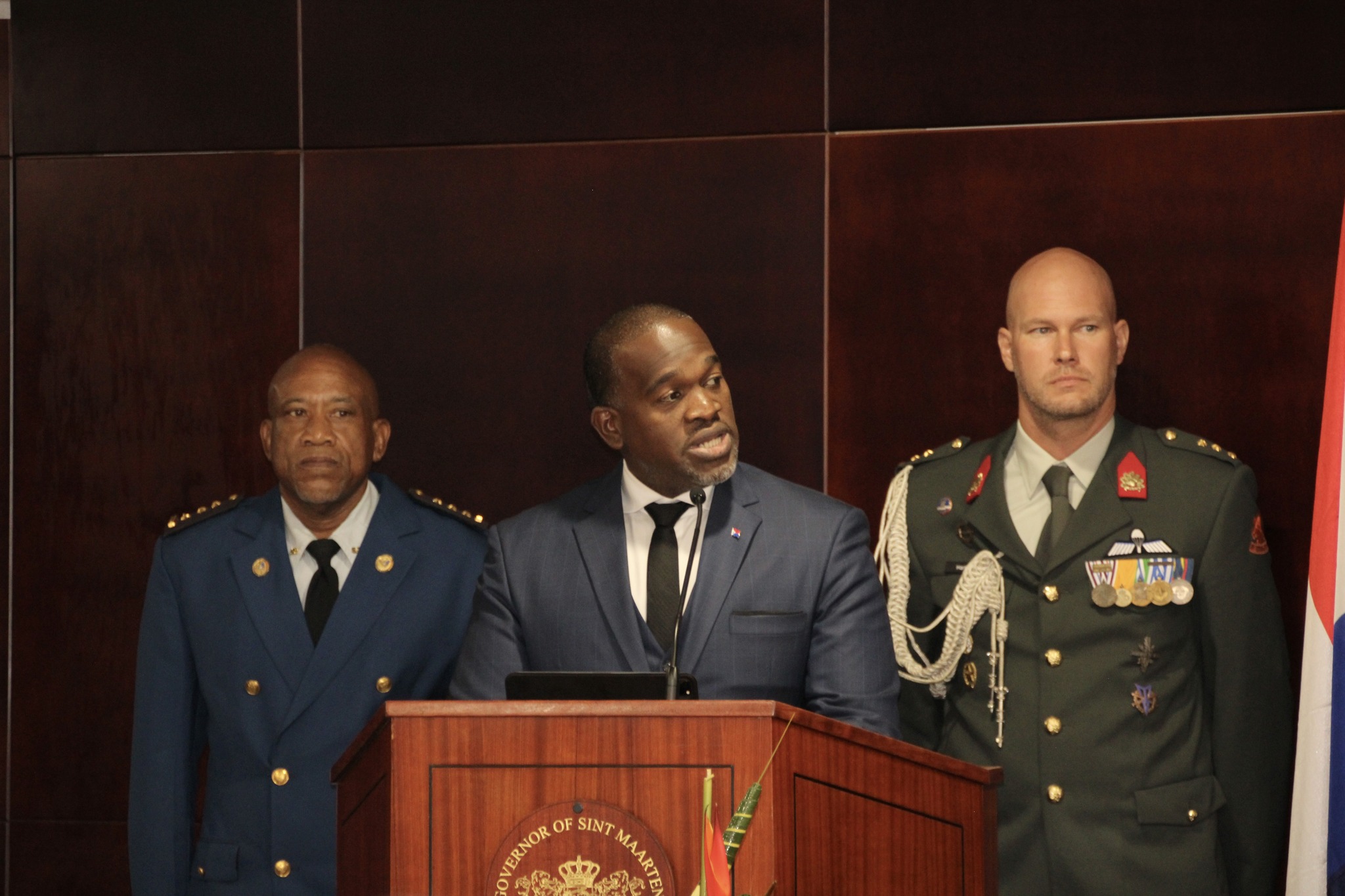St. Maarten faces significant challenges, Governor Baly says

PHILIPSBURG — “Sint Maarten still faces significant challenges. It is vulnerable to external shocks like natural disasters and to a global economic downturn,” Governor Ajamu Baly said in his speech during the opening of the new parliamentary year. The Governor presented a plethora of projects the government intends to complete during the year. Among them are attempts to diversify the economy.
Those attempts will focus on renewable energy, information technology and agriculture, the governor said. “The government plan to continue the strategic leverage of the orange, the green and the blue economy.”
An orange economy (also known as the creative economy) is an evolving concept based on the contribution and potential of creative assets to contribute to economic growth and development.
A green economy aims to reduce environmental risks and ecological scarcities an focuses on sustainable development without degrading the environment.
A blue economy, also known as the ocean economy, describes economic activities associated with oceans and seas. The World Bank defines it as “the sustainable use of ocean resources to benefit economies, livelihoods and ocean ecosystem health.”
The government also makes efforts to diversify the island’s tourism industry by organizing and supporting cultural events, and by promoting sports and culinary tourism.
“Emphasizing sustainable tourism practices will be crucial in preserving the environment and ensuring the tourism industry’s longevity,” Governor Baly said.
The governor highlighted a large number of projects the government has in mind. Whether they will all come to fruition during the new parliamentary year remains to be seen, considering that there will be elections in January and that it is not certain that the same government will return for another 4-year term.
A major issue is the establishment of a National Development Plan. The government aims to present it during the first half of 2024. “This would improve St. Maarten’s chances of anchoring a sustainable future,” the governor said.

Governor Baly expressed some optimism about the state of the economy. “It has shown promising signs of recovery and growth,” he said, referring to an increase in the arrival of stay-over tourists and higher hotel occupancy “resulting in a positive impact on employment rates and government revenue. Unemployment is on the decline, signifying progress in job creation and workforce participation.”
On the other hand, tax compliance remains a concern. “It is low and has been low for some time now,” the governor said. “The government is looking at adjusting current fiscal laws and is in the process of making fiscal adjustments to register at the Organization for Economic Cooperation and Development (OECD).”
Governor Baly announced that the launch of a new immigration entry form is set for the fourth quarter of this year. “It will improve the country’s data collection and its ability to market more effectively.”
Furthermore the governor spoke about the intention to establish a Solid Waste Authority and the introduction of tariffs and collection fees. A new national building code should be in place by the end of the year.
The Digital Government Transformation Project is an ambitious plan for the next seven years. It focuses on building a technologically empowered public sector that aims to improve quality, efficiency, security and accessibility of public service.
Addressing the topic of the labor market, Governor Baly said that the government intends to modernize the work permit policy, curb the abuse of short term contracts, strengthen job security, regulate temporary employment agencies and increase the pension age.
The government also wants to promote responsible gaming and gambling, introduce fees for online gaming as well as fees for lottery booths. The latter will “soon go into effect,” he said.
Other topics are the establishment of a Road Fund, the transformation of the Corporate Governance Council into a Corporate Governance Authority and completing the legislation that regulates the legal position of employees in the justice chain.
###
Related article:
Opinion: Wishful thinking


























